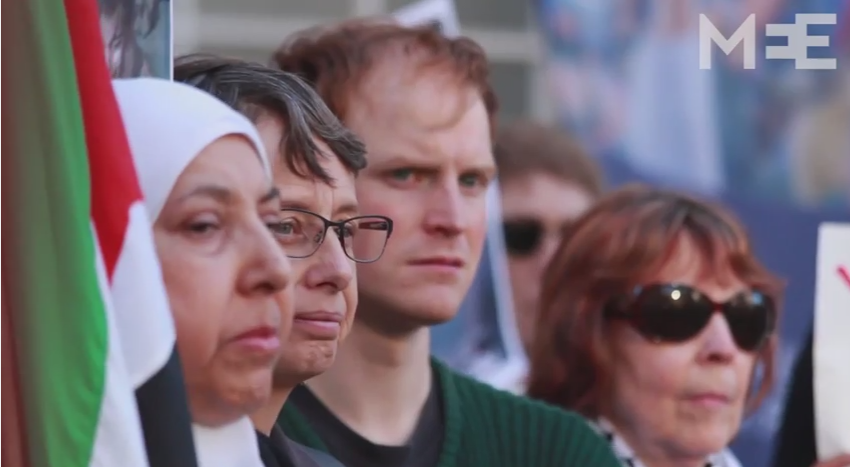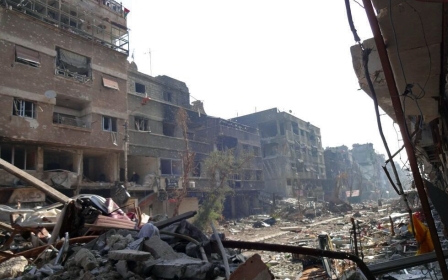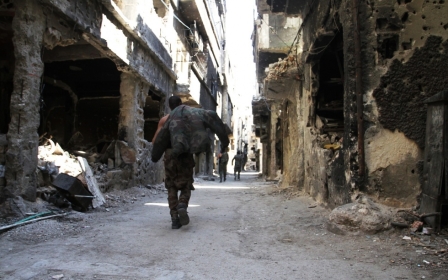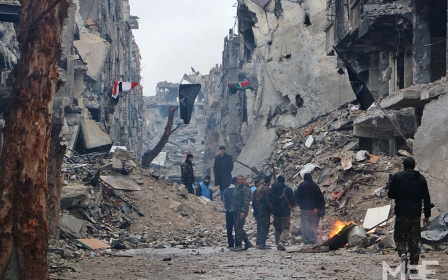Protesters in London condemn 'atrocities' in Yarmouk camp

As the Palestinians of Yarmouk Refugee Camp continue to suffer, a group of demonstrators gathered earlier this week on Tuesday outside the European Commission in London to demand international attention and a safe passage for aid to get through to the refugees in the camp.
Yarmouk, which used to be the largest Palestinian refugee camp in Syria with a population of over 160,000, has been reduced to a shadow of its former self. After more than two years of siege by the Syrian government, inner fighting between rival armed opposition groups within the camp, and the invasion of the Islamic State on 1 April, only an estimated 14,000 remain. Some 276 residents have died due to starvation and lack of medical care, and UN Secretary-General Ban Ki-moon recently described the camp as a “vicious cycle of hell.”
MEE spoke to some of those attending about their reasons for joining the demonstration.
Comedian and activist Jeremy Hardy said he felt that the Palestinians of Yarmouk had been forgotten in the wider narrative of Syria and Isis. "I think people don't remember there are Palestinians in camps in other parts of the Middle East, in Lebanon, in Iraq, in Syria, who've not been treated well, whose leaders of Arab countries have used their names to try and keep their own people on side and piggyback on the issue of Palestine but have done nothing for these people."
He added that Syrian President Bashar al-Assad had "actually attacked this community and now it's under threat from Isis. And it needs the protection of the rest of the world."
UK-based Palestinian journalist Mohammad Sakhnini, who was born in Yarmouk, said: "We are here to protest against all these atrocities and to tell the world that all these problems in Syria, and in particular in Yarmouk, have to actually end sooner rather than later."
Middle East Eye propose une couverture et une analyse indépendantes et incomparables du Moyen-Orient, de l’Afrique du Nord et d’autres régions du monde. Pour en savoir plus sur la reprise de ce contenu et les frais qui s’appliquent, veuillez remplir ce formulaire [en anglais]. Pour en savoir plus sur MEE, cliquez ici [en anglais].




